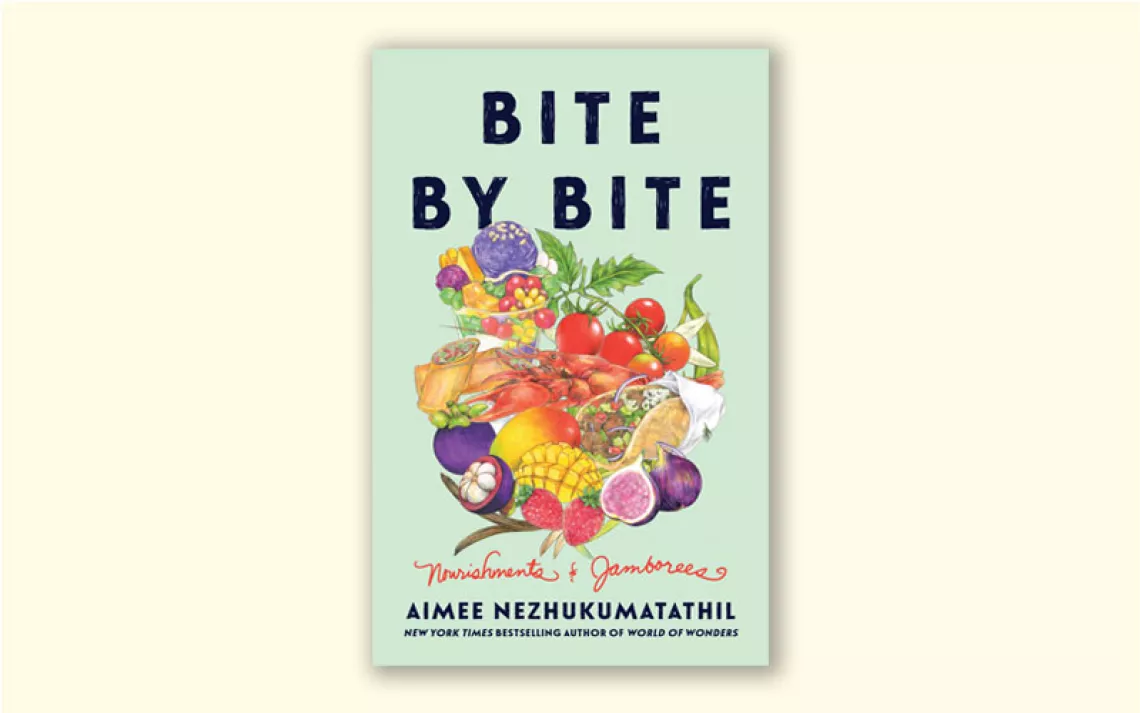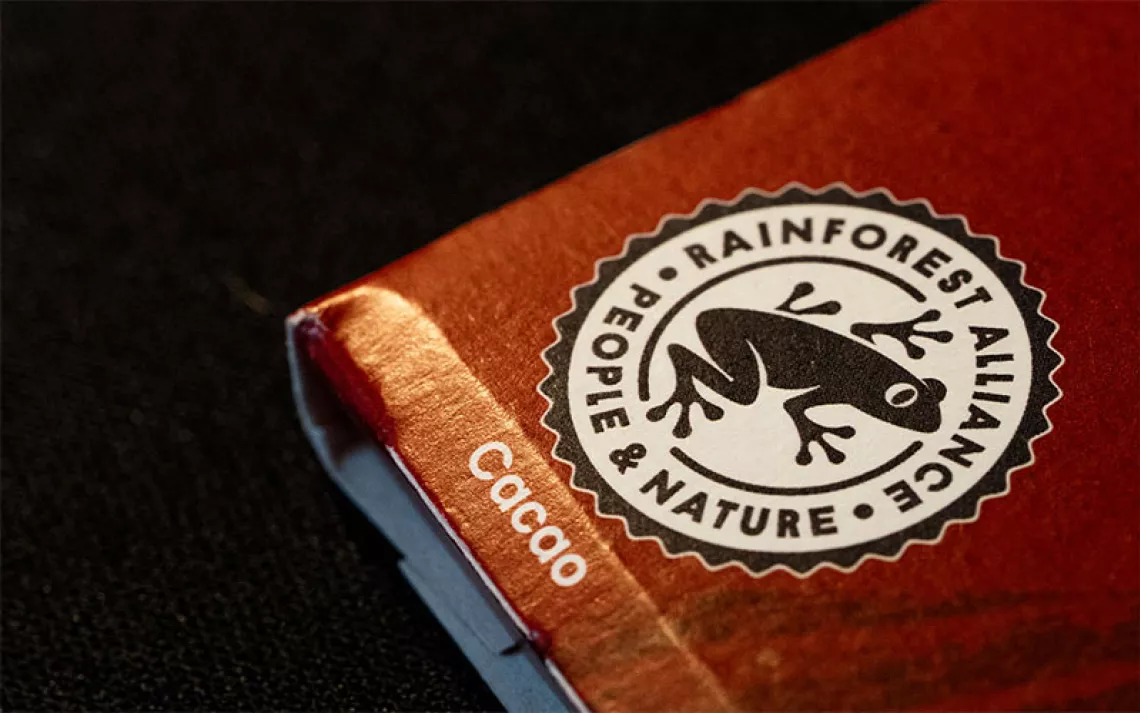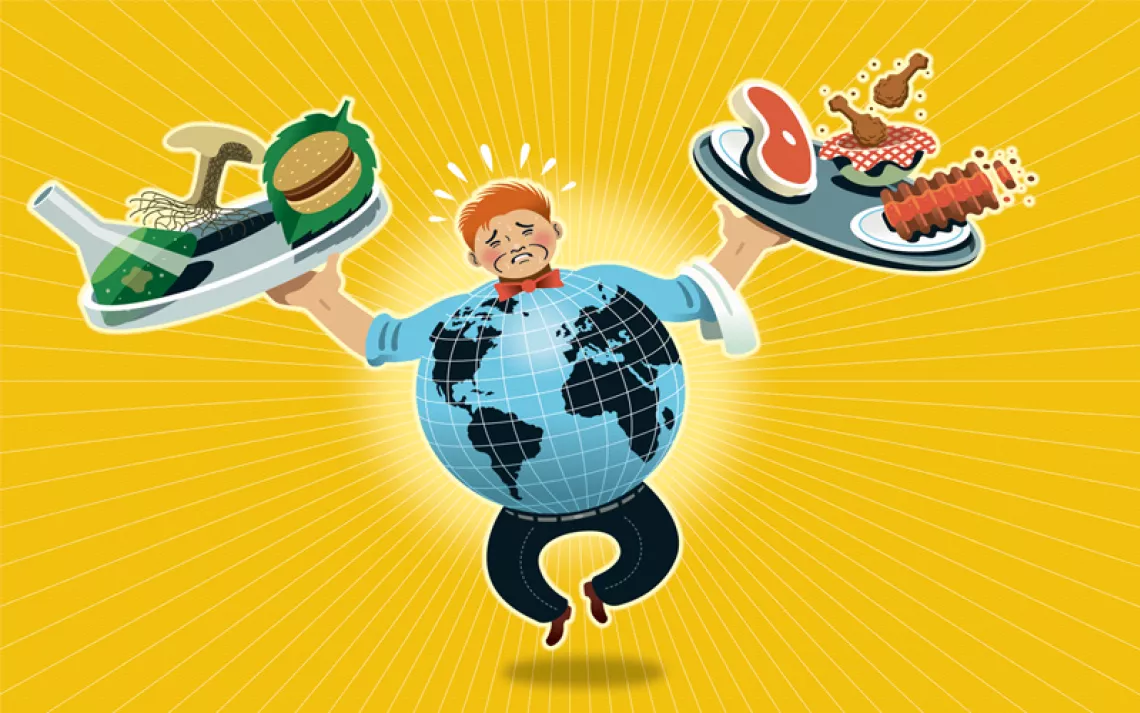I Vant to Suck Your. . . Plant Blood?
Impossible Foods releases a vegan burger that sizzles and tastes just like a meat burger.

Photo courtesy of Impossible Foods
“I remember this [taste],” said 60-year-old Patrick Brown, Stanford University professor and founder of Impossible Foods, “This is what it felt like to get punched in the face.” Brown was describing the unmistakable taste of blood—except this time it was plant blood.
Plant blood sounds like something out of The Day of the Triffids, but it’s for real. The metallic, bloody taste is credited to “heme,” a molecule derived from hemoglobin and found highly concentrated in animals. The progressive mad scientist managed to extract the meaty molecule from the roots of plants and blend it with other bioengineered ingredients (amino acids, fats, and other nutrients from plants) to concoct a blood-like liquid. It’s a major development for the fake-meat industry.
“Heme is 99 percent of the secret to meat flavor,” Brown told the Wall Street Journal. “It’s the reason why meat tastes like nothing else.” Plant-derived heme even behaves like meat when exposed to particular sugars and amino acids: It sizzles on the grill and bleeds as you bite into it.
Brown hopes the meat replica will spark a movement away from the antiquated meat industry and towards greener alternatives. “The system that we use today to produce meat and cheese is completely unsustainable,” Brown asserts. “It has terribly destructive environmental consequences.”
Indeed, the meat industry consumes more than one quarter of available water resources, while 45 percent of the world's surface is devoted to livestock. Even crazier? Animal agriculture generates more greenhouse gas emissions than the transportation sector. (Which pretty much makes burger drive-thrus the most evil thing ever.)
“We’re going to measure our success by looking at satellite photos of Earth...the land surface that's devoted to animal farming,” Brown explains, adding, “20 years from now, we hope to see a different planet.”
We could see a different planet as well as a healthier population. Vegetarian diets are associated with lower risks of obesity, blood pressure and cholesterol related illnesses, heart disease, and even cancer. Brown anticipates healthier food choices at the mass-consumer level once his plant-based animal products hit the shelves. Vegan and vegetarian will no longer be associated with a sacrifice of taste.
But the ethical burger isn't all sunshine and roses yet.
Price will be a crucial factor in consumer conversion, and, at the moment, a plant-blood-infused patty costs a whopping $20. John Muir himself wouldn't fork over that kind of cash.
Understandably, taste is also an issue for the vegan burger—it's better than a turkey burger but worse than a beef burger. Brown expects the end product to convert even the most stubborn of carnivores and, since he’s literally created “impossible foods,” we're pretty sure he can do anything he sets his mind to.
We aren't the only ones: Impossible Foods has attracted over $75 million in venture capital from Google Ventures, Bill Gates, and a few other firms. It’s one of several top-funded startups that have started engineering fake animal products; a list that includes Beyond Meat, Hampton Creek, and Modern Meadow.
These sustainably-minded startups have taken different approaches to replicating meat but they share a common goal: for you to have your steak and eat it too.
While some might not be stoked on the movement towards “unnatural” food, there’s a group of progressive vampires out there that are going to have the best Halloween of their lives.
 The Magazine of The Sierra Club
The Magazine of The Sierra Club



